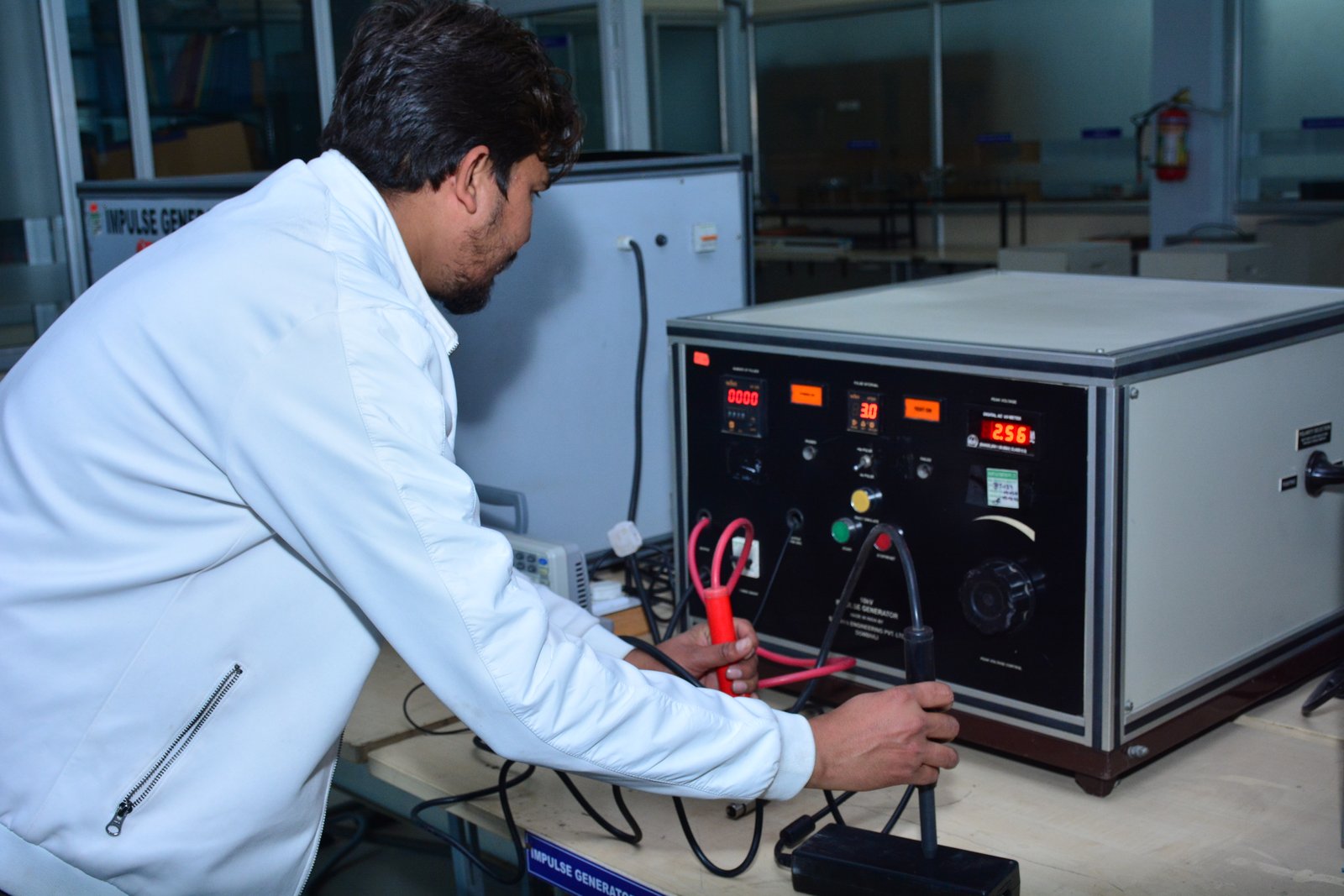30-Mar-2024 | Jaipur | Testing Facility
Understanding Surge and Impulse Tests Ensuring Equipment Reliability and Safety
In the realm of electrical engineering and equipment design, ensuring reliability and safety is paramount. One critical aspect of this is conducting surge and impulse tests.
In the realm of electrical engineering and equipment design, ensuring reliability and safety is paramount. One critical aspect of this is conducting surge and impulse tests. These tests help evaluate the ability of electrical equipment to withstand transient voltage surges and impulses, which can occur due to various factors such as lightning strikes, switching operations, or faults in the power system. In this blog, we'll delve into the importance of surge and impulse tests, their significance in equipment design, and how they contribute to ensuring the reliability and safety of electrical systems.
What are Surge and Impulse Tests?
Surge and impulse tests are specialized tests conducted on electrical equipment to assess their ability to withstand sudden and transient voltage disturbances. These disturbances can result in high voltage spikes or impulses that may damage or disrupt the operation of electrical devices. Surge tests typically involve applying a high-voltage surge to the equipment under test and measuring its response, while impulse tests simulate lightning strikes or other high-energy transients.
Importance of Surge and Impulse Tests:
1. Equipment Reliability: Surge and impulse tests help manufacturers evaluate the robustness and reliability of their electrical equipment under adverse conditions. By subjecting the equipment to simulated voltage surges and impulses, manufacturers can identify potential weaknesses or vulnerabilities and make design improvements accordingly.
2. Safety Assurance: Electrical equipment that fails to withstand voltage surges or impulses can pose serious safety hazards to personnel and property. Surge and impulse tests help ensure that equipment meets safety standards and regulatory requirements, thereby reducing the risk of electrical accidents, fires, and damage to infrastructure.
3. Compliance with Standards: Surge and impulse tests are often required to demonstrate compliance with industry standards and regulations, such as those set forth by organizations like the International Electrotechnical Commission (IEC), Institute of Electrical and Electronics Engineers (IEEE), and National Electrical Manufacturers Association (NEMA). Compliance with these standards is essential for gaining market acceptance and ensuring interoperability of electrical equipment.
Conducting Surge and Impulse Tests:
Surge and impulse tests are typically conducted in specialized test laboratories equipped with high-voltage test equipment and instrumentation. The tests are performed under controlled conditions, with precise voltage waveforms and parameters specified according to relevant standards and test procedures.
During a surge test, the equipment under test is subjected to a series of voltage surges of varying magnitudes and durations. The response of the equipment, including any voltage breakdown or insulation failure, is monitored and recorded. Impulse tests, on the other hand, involve applying high-energy impulses to simulate lightning strikes or switching surges. The equipment's ability to withstand these impulses without damage is evaluated based on predefined criteria.
Applications of Surge and Impulse Tests:
Surge and impulse tests are applicable to a wide range of electrical equipment and systems, including:
- Power transformers
- Circuit breakers
- Surge protectors
- Power distribution systems
- Electronic devices and appliances
- Communication and data transmission equipment
These tests are particularly critical for equipment installed in high-risk environments, such as power substations, industrial facilities, telecommunications networks, and critical infrastructure.
Conclusion:
In conclusion, surge and impulse tests play a vital role in ensuring the reliability, safety, and compliance of electrical equipment and systems. By subjecting equipment to simulated voltage surges and impulses, manufacturers can identify potential weaknesses, enhance product design, and mitigate safety risks. As electrical systems become increasingly complex and interconnected, the importance of surge and impulse testing continues to grow, contributing to the resilience and integrity of modern electrical infrastructure.



